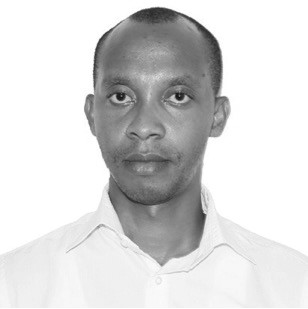Never Again Rwanda has recognized the fact that citizens are yearning for a platform to air their views, and has responded by establishing 10 Citizen Forums in 10 districts of the country.
When you compare many post conflict developing countries, Rwanda’s remarkable recovery shows connection between healing, unity and reconciliation.
Most news reports in the past focused on one thing: the 1994 Genocide against Tutsi. Its true, the Genocide left many devastating effects.
There was breakdown in the social fabric and peoples’ hearts were wounded. There was also development of mistrust, fear and suspicion.
All these are a stark reminder of the most tragic episodes of a dark past. Yet, beyond the troubled past, citizens have sought a common ground to participate freely in development in order to achieve the desired goals.
Meaningful citizen participation in policies and programs entails conducive environment.
Today, in the Rwandan context, this begins with freedom of expression and having space for dialogue on issues affecting their day today citizen lives
Never Again Rwanda (NAR) has recognized the fact that citizens are yearning for a platform to air their views, and has responded by establishing ten Citizen Forums in ten districts of the country. They are in Gasabo, Musanze, Karongi, Bugesera and Gicumbi. Others are in Rwamagana, Huye, Nyabihu, Gasabo and Nyaruguru districts.
The Citizen Forums therefore make it possible for citizens to dialogue among themselves. The forums focus on shared needs, priorities and challenges within their communities.
They emphasize the importance of rekindling a sense of unity, and trust necessary to work together to transform community.
This is anchored on freedom of expression of views, opinions and criticisms.
“This is where we interact with leaders with purpose of seeking solutions to our challenges. Many citizens turn up to seek solutions to their problems, but we also engage into other development activities in our area,” said Vestine Mukandinda, a member of the Citizen Forum in Kibeho sector, Nyaruguru district.
The citizen forums feature discussions, participatory dialogue and draw common resolutions.
Citizens are also informed about their rights and their need to contribute to issues of governance. Enlightened citizens are now holding their local leaders accountable.
The forums have also helped to strengthen the capacity of citizens to questions where they see flaws.
This year, for instance citizen forums members expressed concern over the high rates of school dropouts in their community. In their discussions, they examined possible causes of school dropouts and devised various solutions.
They took the initiative to follow up and ensure that children who had previously dropped out of schools return back to their classrooms.
In Nyaruguru district, out of 412 children who had dropped out of school, 386 have so far been re-enrolled.
In Bugesera, Citizen Forum members met decision makers at the district and sector level and also met with the advisory council, to discuss their pressing concerns about the town master plan and local government taxes.
In Huye and Musanze districts members met and discussed key issues with decision makers.
“This is a platform for understanding better, the challenges we face as a community, and seek solutions without waiting for outsiders. We sit on a round table and through dialogue we realize that what affects one person has an effect to the whole community,’’ said Corneille Ndamage, a forum facilitator, from Bwishyura sector in Karongi District.
The impact has been recorded by improvement in the performance of the districts.
“This year’s performance of our district has motivated us, there has been great improvement in service delivery. Many plans were implemented, the performance is a reflection of our involvement; we thank the new leadership,’’ Deogratias Bimenyimana, a member of the forum in Gikomero, Gasabo district, mentioned during the last citizen forum.
Evidence from our NAR’s research ‘Governing for and with citizens: Lessons from post-genocide Rwanda 2016’, reveals that Rwandans understand the concept of citizen participation and what is expected of them in order for it to be effective.
NAR research also indicates that in a post-genocide Rwanda, it is important to understand what encourages citizens to participate. Interviews with citizens reveal that effective participation cannot take place unless is restored, their access to information about government policies not restricted, their ideas given feedback by leaders, and a safe space to air out their ideas and interact is provided
The writer Bonny Mukombozi is a Governance and Rights Program Coordinator with Never Again Rwanda. For feedback, please reach us at: info@neveragainrwanda.org


